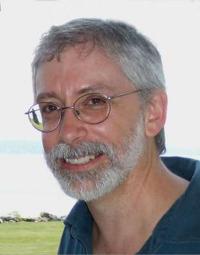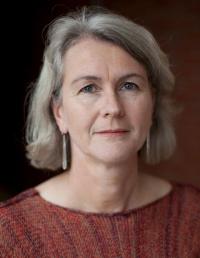Three professors named AAAS fellows.
Three professors named AAAS fellows
Barry Connors, Diane Lipscombe, and David Rand have been named fellows of the American Association for the Advancement of Science. They will be officially welcomed as fellows on Saturday, Feb. 18, 2012, at the AAAS Annual Meeting in Vancouver, B.C.
PROVIDENCE, R.I. [Brown University] — Three members of the Brown University faculty have been elected fellows of the American Association for the Advancement of Science, the world’s largest general scientific society. Election as a fellow is an honor bestowed upon AAAS members by their peers, who nominate fellows for election by the AAAS Council, the association’s policymaking body.
The AAAS honored 539 members as fellows this year in recognition of their scientifically or socially distinguished efforts to advance science or its applications. The new fellows will be officially welcomed on Saturday, Feb. 18, 2012, at the AAAS Annual Meeting in Vancouver, B.C. The official announcement of their election will appear in the “AAAS News & Notes” section of the journal Science on Dec. 23.

Barry Connors
The L. Herbert Ballou University Professor
Professor of Neuroscience
Connors, chair of the Department of Neuroscience since 2006, came to Brown in 1987 after five years as an assistant professor at Stanford. He earned his Ph.D. in physiology and pharmacology from Duke in 1979.
Connors’ research concerns the cellular physiology of the brain, in particular the neocortex, which is responsible for thinking, remembering, processing sensory information, and controlling movement. He studies the physiological properties of neurons, synapses, and the networks they form, and is also interested in the mechanisms of epileptic seizures.
Connors won the Dean’s Teaching Excellence Award in the Alpert Medical School 2004-08.
The AAAS recognized Connors “for distinguished contributions in the field of neuroscience, particularly to the understanding of the physiology of neurons, synapses, and circuits in the neocortex and thalamus.”
…

Diane Lipscombe
Professor of Neuroscience
Lipscombe, earned her Ph.D. in pharmacology at University College London in 1986 and began studying calcium ion channels in the Yale lab of Richard Tsien while a postdoctoral associate. She joined the Brown faculty in 1992 and has directed the multidisciplinary neuroscience graduate program since 2005.
Calcium is essential for neurons to communicate, to grow, to store memories, to adapt, and to die. Calcium ion channels are the gate keepers of the calcium signal that controls many of these events. Lipscombe studies calcium ion channels and the cellular mechanisms used to optimize their function in specific parts of the nervous system. She looks at normal and disease states, including chronic pain and mental illness.
The AAAS recognized her “for distinguished contributions to understanding of the regulation of voltage-gated calcium ion channels and subsequent effects on the function of such channels in neurons.”
…

David Rand
Professor of Biology
Ecology and Evolutionary Biology
Rand, who came to Brown in 1991 after earning his Ph.D. at Yale in 1987, studies how natural selection acts on genes and genomes, focusing on the role of mitochondrial mutations in animal performance, evolutionary fitness, and aging. He also studies thermal selection with the goal of identifying the genetic interactions that allow organisms to adapt to heterogeneous environments.
In August Rand became director of the Center for Computational Molecular Biology, which seeks to unite research and education on genomic diversity using high throughput sequence data and computational analyses that bear on questions spanning evolutionary genetics and human disease. He is also director of an NSF IGERT program in reverse ecology that combines training in ecological, genomic, computational, and statistical sciences as an integrated foundation for doctoral studies.
AAAS lauded Rand “for distinguished contributions to the fields of molecular evolution and population genetics, particularly in the area of selection on mitochondrial DNA and nuclear-mitochondrial fitness interactions.”
###
* The above story is adapted from materials provided by Brown University
** More information at Brown University (Providence, Rhode Island, USA)
________________________________________________________________




















